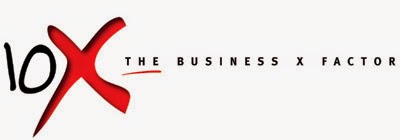In time’s like this, my mentor Allen Pathmarajah’s quote of “revenue is vanity, profit is sanity but cash flow is king and queen” has never been so acutely relevant!
To be sustainable , your business needs to be profitable.... as this is a key requirement that more cash will come in than go out!
Jonathan Byrnes book "Island of Profit in a Sea of Red" suggests that nearly 40% of the average company is unprofitable, and 20 to 30% is so profitable that it provides all the earnings and subsidizes the losses.
The good old 80-20-80 rule
If you spend 80pc if your time on 20pc of the right things - you’ll get 80pc of the results
Byrnes share 3 insights which can probably relate to many businesses:-
- reported profits are much lower, often half of what they could be;
- the best customers generally receive only average service, which raises a critical risk competitors picking off the profitable piece of business by offering better service; and
- the company loses the opportunity to shift resources to the highest payoff activities - or to focus on releasing the constraint .
How does a company
- make sure all areas of its business is as profitable as it can be ?
- make sure that there is a total focus on customer service and outstanding customer experience?
- ensure that it shifts resources to the highest payoff opportunities or to release the constraint and ensure that there is enough buffer to make sure that it is not a constraint anymore! (David Hodes - 5 step focus) .
How does one look for areas in the business that are the constraint with a view to allocate resources to release that constraint?
What financial and management control information systems are in place to surface the problem and opportunity areas?
Who in the organisation is responsible to do this?
The answer - is in the good old quote “what you can measure you can manage”
A company needs to build grassroots profitability management processes to measure management activities, and someone should be accountable to manage and account for this.
So, who is that someone?
In time’s like this, my mentor Allen Pathmarajah’s quote of “revenue is vanity, profit is sanity but cash flow is king and queen”
To be sustainable , your business needs to be profitable.... as this is a key requirement that more cash will come in than go out!
A company needs to build grassroots profitability management processes to measure management activities, and someone should be accountable to manage and account for this.
Sure, a CEO or a general manager is responsible for profitability but most of these individuals are focused on major strategic initiatives, important customer relationships and making sure their key management make budget.
CFO's, and other top finance managers, are very focused on reporting on the overall profit and loss of the company, managing cashflow, with mergers, acquisitions and divestments often In play.
This does not give him or her time to focus systematically on identifying the constraints in the business, rectifying embedded unprofitability, and on building this process into the company's core set of ongoing management activities.
The CFO is usually an accountant, who generally likes stability and does not cope well with change, innovation and risk.
Is it the CFOs role to become skillful at co-ordinated change management and managing constraints?
Is it the CFOs function to find your company's constraint, hidden profits and ultimately cash?
Is there a position missing in the organisation - Maybe a Chief Profitability Officer?
This article has been inspired by
David Hodes knowledge share at the BBG Enterprise forum on “your constraint is your best friend.” David is an acclaimed author and expert in the “Theory of Constraints”
And
James O'Brien - who is the Founder of CFO Accelerator who mentors and coaches CFO’s across Asia Pacific.
https://www.linkedin.com/pulse/cfo-role-cashflow-profitability-james-o-brien
